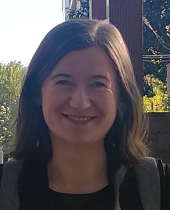
Track 3. Wireless,
Mobile, Pervasive
and Ubiquitous
Technologies for
Learning (WMUTE)
Track Program Chairs
[Chair Coordinator]
Lancaster University,
UK
Federal University of Uberlandia,
Brazil
Massachusetts Institute of Technology, USA
Swinburne University of Technology,
Australia
Track description and topics of interest
This specific track of the conference addresses those aspects related to different uses of mobile, wireless, pervasive and ubiquitous computing in combination with proven educational approaches to support new forms and possibilities of teaching and learning. Highly mobile, context-aware, and pro-active services provide significant benefits to education. The WMUTE track provides a forum to present and discuss research, applications and technologies used in learning and teaching as well as to map out directions for future developments and collaborations in this area.
The scope of this track covers, but is not limited to, the following topics:
- Theoretical foundations for mobile and ubiquitous learning
- Learning strategies for mobile and ubiquitous learning
- Multimodal applications to support a blended learning environment
- Sustainable mobile teaching and learning applications
- Interactive mobile technologies in learning and teaching
- Novel uses of wireless communication technologies and their applications to teaching and learning
- Innovative digital content for mobile and ubiquitous learning
- Evaluation of mobile and ubiquitous learning systems/approaches
- Empirical studies demonstrating the potential benefits of mobile technologies in education
- Context-aware learning: Design and Application of learning across different contexts
- Mobile augmented reality tools and technologies applied to learning
- Learning in connection with Industry 4.0 / Cyber Physical Systems
- Sensor-based applications and learning support
- Intelligent, pro-active infrastructures and tools for education
- Internet of Things support for learning
Track Program Committee
| Phillip BENACHOUR, Lancaster University, England |
| Fabiano DORÇA, UFU, Brazil |
| Eric KLOPFER, Massachusetts Institute of Technology, USA |
| Andreea MOLNAR, Swinburne University of Technology, Australia |
| Ibrahim AREF, Lancaster University, England |
| Muhammad FAROOQ-I-AZAM, COMSATS University Islamabad, Pakistan |
| Jose GARCIA ESTRADA, Norwegian University of Science and Technology, Norway |
| Cristina Hava MUNTEAN, National College of Ireland, Ireland |
| Vijeyananthan THAYANANTHAN, King Abdul-Aziz University, Saudi Arabia |




